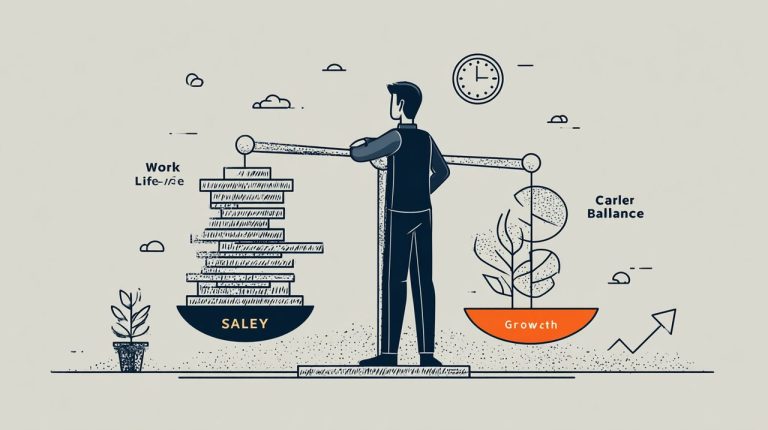The siren call of a higher salary is, for many professionals, an almost irresistible force, often serving as the primary impetus for contemplating a career transition. Yet, a striking paradox emerges: a considerable number of individuals who make such a move, driven solely by financial uplift, report significant regret within the span of a single year. This pervasive pitfall underscores a fundamental truth: a larger paycheck, while undeniably alluring, seldom encapsulates the full narrative of a career trajectory.
The Allure of Salary: Why a Deliberate Framework is Essential
n n
n
When confronted with a lucrative offer, the human tendency is to focus instinctively on the immediate financial gain. This singular focus, however, can create a form of tunnel vision, obscuring the broader, more profound long-term implications of such a decision. Choices made under this narrow lens might indeed inflate a bank account in the short term, but they frequently come at the cost of depleted career satisfaction or compromised personal well-being over time. Without a robust, structured methodology, the critical question of how to navigate a potential job change for financial gain devolves into a mere gamble, rather than an informed, strategic maneuver.
A job change is far more than a transactional event; it is a significant life inflection point. Its repercussions ripple through your daily existence, shape your future trajectory, and profoundly influence your overall happiness. It is precisely for these reasons that a comprehensive Decision Framework for Navigating Job Changes for Higher Salary becomes not just beneficial, but indispensable. Such a framework empowers you to look beyond the superficial appeal of an amplified paycheck, fostering a holistic evaluation that resonates with your deeper career aspirations and life objectives. By embracing this structured approach, you transform a potentially impulsive decision into a calculated, strategic investment in your future self.
Core Elements: Beyond the Monetary Value
When assessing the true merits of a job change, particularly one motivated by a higher salary, it is imperative to broaden the perspective beyond direct compensation. Genuine career advancement and sustained satisfaction are not singular outcomes but rather emerge from a confluence of interconnected factors, each playing a critical role within your professional ecosystem. A wise decision, therefore, hinges upon the comprehensive evaluation of these diverse elements.
Career Development Potential
Does the prospective role offer clearly articulated growth pathways? This question delves into more than just a job title; it probes the very architecture of your professional evolution. Consider the explicit opportunities for skill acquisition, the presence of mentorship programs, and the potential for upward mobility. It is often the case that a position with a marginally lower starting salary, but a well-defined trajectory for continuous learning and promotion, can yield far greater long-term financial and professional dividends than a high-paying, yet stagnant, alternative. For instance, a role that grants access to vanguard technologies or provides intensive leadership training might prove invaluable, even if its initial compensation is not the highest on offer.
Company Culture and Values
The very fabric of a workplace environment fundamentally shapes daily job satisfaction. It is essential to meticulously assess the company’s prevailing culture: Is it inherently collaborative or intensely competitive? Does its ethos align with your personal values concerning ethics, innovation, and social responsibility? A profound mismatch in values can become a pervasive source of chronic stress, even when accompanied by an impressive salary. Consider the dissonance one might experience transitioning to an organization renowned for aggressive sales tactics when your own professional paradigm is built upon ethical, relationship-building approaches.
Benefits and Compensation Structure
Beyond the nominal base salary, a holistic understanding of the total compensation package is not merely advisable but crucial. This encompasses a range of elements that collectively define your financial well-being and quality of life:
- Health and dental insurance: Scrutinize costs, coverage breadth, and family plan options.
- Retirement plans: Investigate 401(k) matching contributions or any available pension schemes.
- Bonuses and equity: Understand the structure of performance-based incentives and potential stock options.
- Paid time off: Clarify allowances for vacation, sick leave, and public holidays.
- Other perks: Explore professional development budgets, wellness programs, and tuition reimbursement policies.
A seemingly higher base salary can often be significantly eroded by substantially reduced benefits, ultimately diminishing your net financial gain or, more importantly, your overall quality of life.
Work-Life Balance and Personal Growth
The demands of a new role extend beyond the office walls. Critically evaluate the expected work hours, the availability of flexibility options—such as remote work or hybrid models—and the daily commute time. More importantly, consider the tangible impact these factors will have on your personal life. Will the new position afford you the necessary space for hobbies, dedicated family time, or the pursuit of continued education? A role that relentlessly demands excessive hours, irrespective of its generous remuneration, carries a substantial risk of leading to burnout, impeding personal development, and ultimately jeopardizing your long-term career sustainability and overall happiness.
Practical Guidance: Applying the Framework
The act of applying a structured job change decision framework for career advancement transforms what might otherwise be a daunting, nebulous choice into a manageable, phased process. This systematic approach ensures that all critical aspects are meticulously considered before any definitive move is made.
nAn isometric vector graphic illustrating a multi-stage decision-making framework. Four distinct, interconnected platforms represent “Self-Assessment
💡 Frequently Asked Questions
Many professionals regret job changes made solely for a higher salary because a singular focus on financial gain can lead to tunnel vision, obscuring broader long-term implications such as depleted career satisfaction or compromised personal well-being over time.
A Decision Framework is an indispensable structured methodology that empowers individuals to look beyond the superficial appeal of a higher paycheck. It fosters a holistic evaluation of a job change, aligning it with deeper career aspirations and life objectives, transforming an impulsive decision into a calculated, strategic investment.
Beyond direct compensation, it is crucial to consider career development potential, the company culture and its alignment with personal values, the comprehensive benefits and compensation structure (including insurance, retirement plans, bonuses, and paid time off), and the impact on work-life balance and personal growth.
Company culture is critical because it fundamentally shapes daily job satisfaction. A profound mismatch between a company's prevailing culture and an individual's personal values can become a pervasive source of chronic stress, even if the salary is impressive.
A seemingly higher base salary can be misleading because it might not reflect the total compensation package. It can often be significantly eroded by substantially reduced benefits, such as less comprehensive health insurance or retirement plans, ultimately diminishing net financial gain or overall quality of life.






